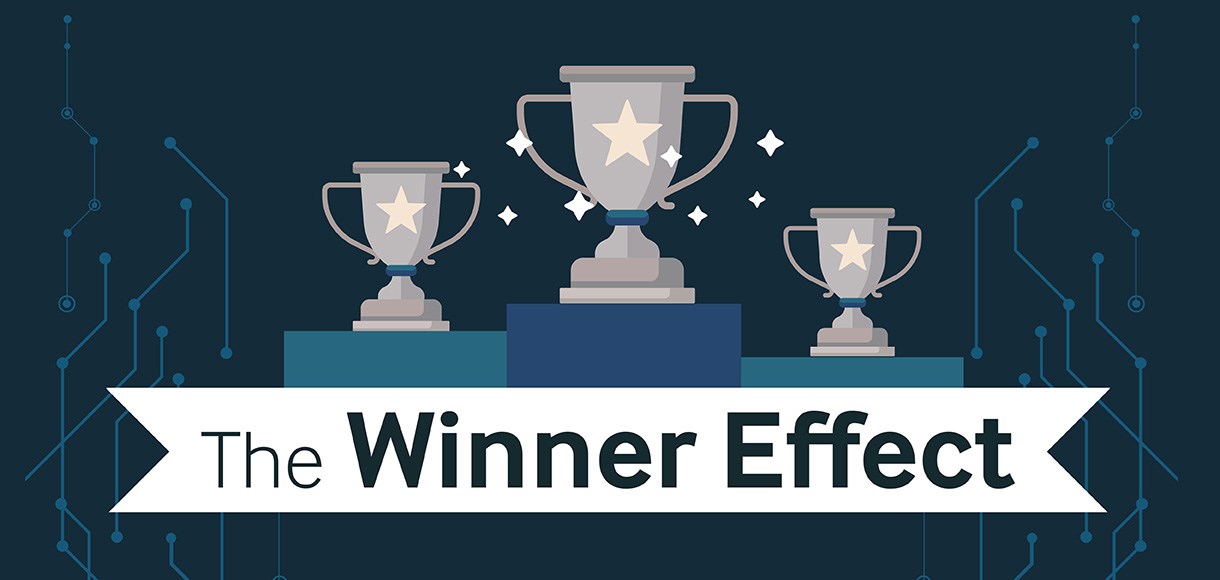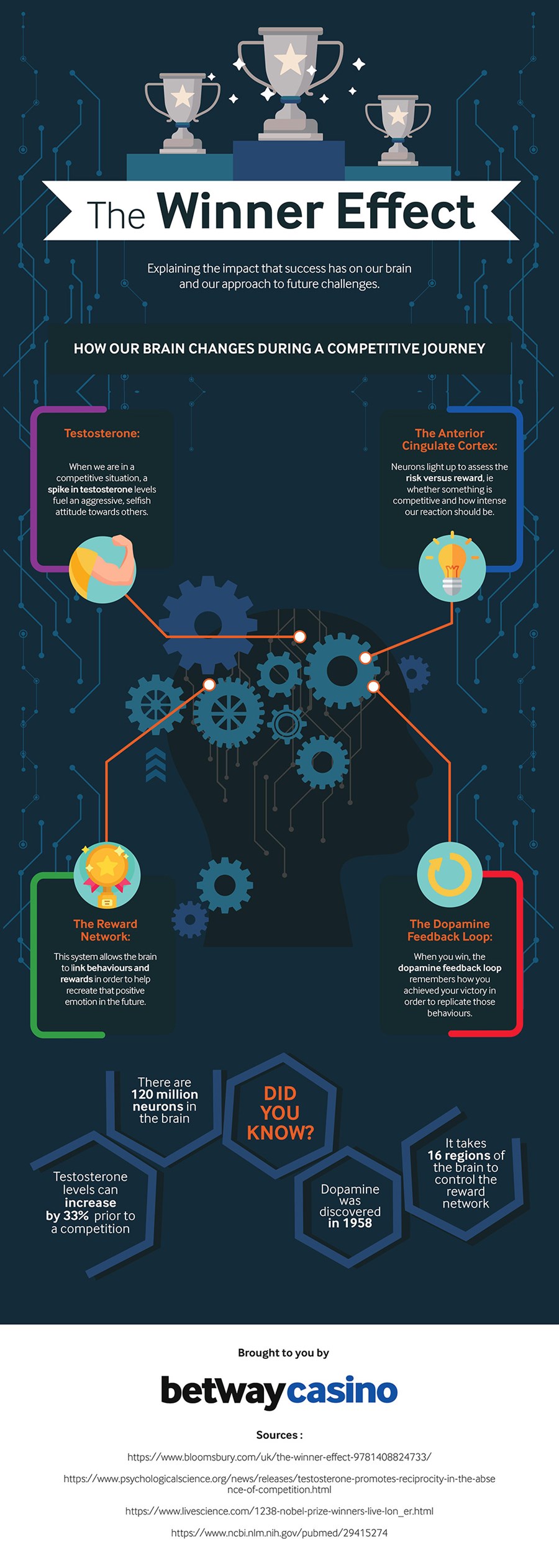The Winner Effect: How success changes our brains

Our infographic breaks down each stage of a competitive journey, and reveals how winning makes us more likely to be successful in the future.
It would seem that the old saying is true: success really does breed success.
According to cognitive neuroscientist and psychologist Ian Robertson, power and success in competitive environments has a positive effect on the brain, otherwise known as the "Winner Effect".
But how do our brains process winning? And what does it do to us to make repeat wins more likely?
Whether it's winning big on an online casino or beating your family in a game of Monopoly, all winners attribute positive feelings and emotions to success.
Robertson, who is also a professor at Trinity College, believes that our brains are hardwired to seek out more positive experiences because of these past successes.
As explained in his 2012 book, the Winner Effect is based around four key processes: the Anterior Cingulate Cortex (ACC) assessing the risk versus reward of a situation, testosterone levels rising, the brain's reward network linking behaviours and emotions, and the dopamine feedback loop helping you to replicate those actions.
Individuals that experience the Winner Effect then become more focused, confident and aggressive in competitive situations, as they get a taste for winning and outsmarting the competition.
As a result, those who win are more likely to win in the future and are more eager to try to do so again.
Robertson's fascinating theory inspired us to create this infographic outlining each step of an individual’s competitive journey, and the effect that success can have on our brain.

Every winning journey follows the same path
Robertson and his peers believe that our brains and bodies go through six stages along any type of winning journey.
It all begins from an absorption of data, which influences our decision-making and eventual performance. We then anticipate the final result of our performance, react to the final result and elicit emotional or behavioural changes based on the final outcome.
Whether you're playing chess, asking someone out on a date or hitting a massive jackpot on an online casino, we always analyse a situation before putting theory into practice and enjoying the sense of reward.
We attach positive feelings to competitions, games and experiences that have gone well, so it’s unsurprising that you may develop an affection for a video game, a sport or an online slot that you’ve won at before, with a stronger desire to play it again.
Ultimately, what does winning do for us?
There's no doubt that winning has the power to lead to more success. Our brains are hardwired to seek out positive experiences.
When we do win, this triggers our innate desire for more of the emotional and physical rewards, such as money, medals and prestige.
Winning does a lot for our brains, our bodies and our lives in general.
The more we win, the more our brains carve out new neural pathways in a bid to recapture the positive emotions that stimulate our neurons, with the result that being successful is good for the both soul and the brain.





































